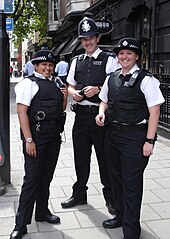Font for fascism
Convicted serial offender and fascist Stephen Yaxley-Lennon, who for some inexplicable reason prefers to be called Tommy Robinson, has brought out a book with the help of a ghost writer Peter McLoughlin.
For a day the book entitled Manifesto was top of Amazon UK’s best-seller chart, according to The Guardian, is is currently unavailable on Amazon’s website.

Whilst the cover looks like the flag of St George folded in half, the text below the title dubiously claims the book deals with Free Speech, Real Democracy and Peaceful Disobedience, whilst what Yaxley-Lennon and his supporters indulge in is freedom to be racially prejudiced, fascism and violent disorder, as the media have duly reported down the years.
However, the most salient feature of the cover that caught your correspondent’s eye was that the title and the names of the book’s authors were all written in the Comic Sans font.
This friendly sans serif font is popular in place like primary schools due inter alia to its assumed legibility. This font, termed notorious by none other than the BBC, has also been in existence for 30 years this year.
However, the font has not proved universally popular, as is imparted by its Wikipedia page.
Film producer and The New York Times essayist Errol Morris wrote in an August 2012 posting, “The conscious awareness of Comic Sans promotes—at least among some people—contempt and summary dismissal.” With the help of a professor, he conducted an online experiment and found that Comic Sans, in comparison with five other typefaces (Baskerville, Helvetica, Georgia, Trebuchet MS, and Computer Modern), makes readers slightly less likely to believe that a statement they are reading is true.
Contempt and summary dismissal are both apposite to anything that comes out of Yaxley-Lennon’s mouth, from his pen (or in his case crayon. Ed.) keyboard or camera.
